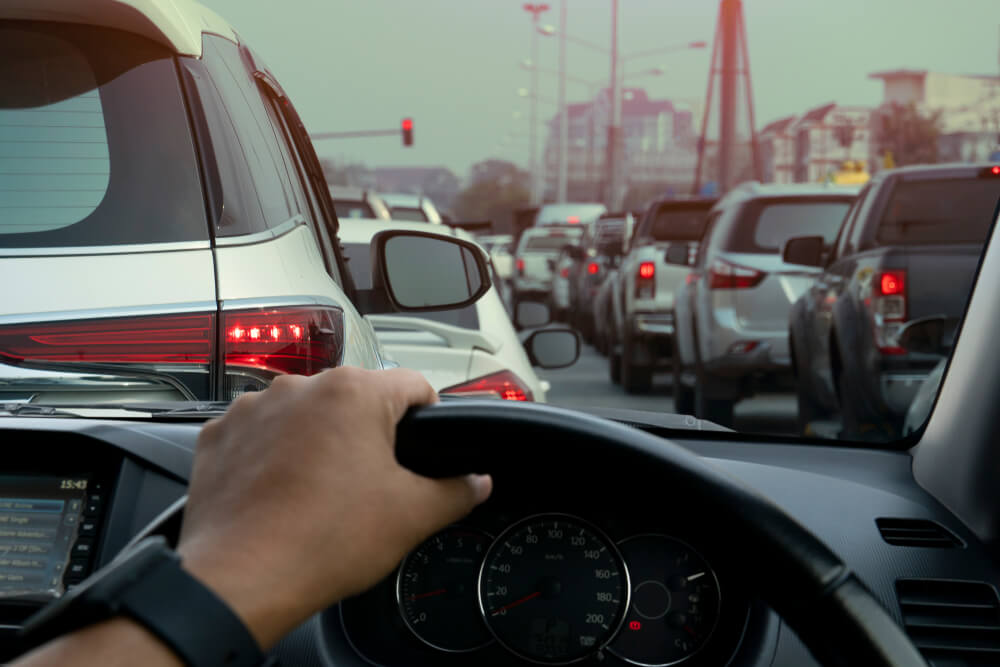You might worry about new rules for renting a car in Thailand next year. In 2025, foreign drivers will face updated driving licence and permit requirements. This guide on Driving Thailand In 2025 will help you understand what documents you need, the tests to expect, and how much it may cost.
Find out the key facts before your journey begins.
Thai Driving License Requirements in 2025
To drive in Thailand, foreign visitors and expats must meet specific requirements. They need the right documents to apply for a Thai driving license.
Eligibility criteria for foreign visitors and expats
Foreign visitors must hold a valid International Driving Permit, or an official driving licence from their home country. Expats who stay longer than 90 days need a Thai driving licence to use rental cars and meet local driving regulations.
Applicants must be at least 18 years old for car licences and show proof of visa status, residency, or work permit.
“All applicants must pass health checks and eye tests.”
Up-to-date passport copies, address verification in Thailand, and recent photographs are standard requirements too. Continue with the list of key documents needed for your application.
Key documents needed for application
To apply for a Thai driving licence in 2025, you need certain documents. These help prove who you are and your ability to drive.
- Passport with valid visa: You must show a passport that has a visa proving you’re legally in Thailand.
- Residence Certificate: This document, issued by the Thai Immigration Bureau or your embassy, confirms your address in Thailand.
- Medical Certificate: A doctor’s note stating you’re physically fit to drive. It must be issued within the last month.
- Valid Driving Licence: Your current driving licence from your home country is needed for comparison.
- International Driving Permit (IDP): If your licence isn’t in English, an IDP will act as a translation.
- Passport-sized Photos: Usually two recent photos are required for the application process.
- Proof of Visa Status: Documents showing your visa type and duration of stay can be important, depending on the type of licence you’re applying for.
Changes to International Driving Permits (IDP) Policies
Changes to IDP policies may affect how foreign drivers operate in Thailand. New rules might include limits on using IDPs and the need for a written test before driving.
Restrictions on using IDPs
Thailand will limit International Driving Permit (IDP) use for foreign drivers from 2025. You can drive with an IDP in Thailand only for up to 60 days after your arrival. Car rental companies now ask for a valid Thai driving licence if you stay longer or rent cars often.
This applies even if you hold an IDP under the 1949 Geneva Convention.
“Foreigners may use their International Driving Permit only up to 60 consecutive days after entry, after which a Thai licence is required,” confirms the Department of Land Transport.
Rental requirements have become stricter, and police do regular checks on tourists’ documents. Ignoring new driving regulations could lead to fines or denied insurance coverage during accidents.
Make sure you switch to a proper Thai licence before the allowed period ends.
Mandatory written test requirements for foreigners
Foreign visitors and expats must take a written driving test to get a Thai licence in 2025. The exam now applies to almost all foreign drivers, even if they hold an International Driving Permit (IDP).
The written test covers key road safety rules, local traffic laws, rental requirements, and insurance coverage for vehicle types on Thailand’s roads.
The test is in English at most licensing offices. Applicants answer multiple-choice questions about car rental regulations and safe driving practices. Study materials are available at the Department of Land Transport or online.
Foreigners should prepare before applying to avoid delays or failed attempts. For those moving forward, knowledge of licence fees and budgeting will help plan your next steps.

Costs and Budgeting for Thai Driving Licenses
Driving in Thailand costs money. You need to budget for license fees and other expenses.
License fees for cars and motorbikes
Car and motorbike licence fees in Thailand for 2025 are clear-cut. Below is a summary for foreign visitors and expats.
| Licence Type | First-time Application Fee | Renewal Fee (5 years) | Miscellaneous Costs |
| Private Car | 205 THB (2 years) | 505 THB | Medical Certificate: 100-200 THB Translation Fee: 300-500 THB (if needed) Photo Fee: 100 THB |
| Motorbike | 105 THB (2 years) | 255 THB | Medical Certificate: 100-200 THB Translation Fee: 300-500 THB (if needed) Photo Fee: 100 THB |
Additional costs to consider
Consider extra costs before renting a car in Thailand. Insurance fees often add to the base rental price. Some companies charge for GPS devices or child seats. Fuel is another expense; refuelling might be more costly than filling up at a service station.
Fees for parking and tolls can also increase your budget. Always check for hidden charges, like cleaning fees or late return penalties. Understanding these costs helps you plan better when driving in Thailand 2025.
Navigating the Thai Driving Test
- The Thai driving test includes a written and practical part. Prepare for the questions on road signs and rules to pass the first part. For the practical test, practice driving in different conditions to show your skills.
Written test structure and tips
The written test is crucial for getting a Thai driving license. It covers road rules and safety.
- The test consists of multiple-choice questions. You will answer around 50 questions.
- Questions focus on local traffic laws and road signs. Study these topics thoroughly.
- There are also questions about safe driving practices. Know how to react in different situations.
- The passing score is usually around 70%. Aim to answer at least 35 questions correctly.
- Practice using online tests and resources. They can help you become familiar with the format.
- Bring your identification documents on the test day. This could include your passport or IDP.
- Stay calm during the test; it’s designed to be straightforward. Read each question carefully before answering.
- Review the Thai Highway Code if you have time. It provides essential information for drivers.
Prepare well, and you’ll increase your chances of success!
Practical test overview
Driving in Thailand includes a practical test. This part checks your ability to drive safely and follow road rules.
- The test is conducted on a closed course. You will drive through various obstacles.
- You must demonstrate basic skills like parking, turning, and stopping.
- An examiner will watch your performance closely. They will judge how well you handle the vehicle.
- Be prepared for different traffic scenarios during the test. This may include dealing with pedestrians or other vehicles.
- You can practise before your test day to build confidence. Familiarity with the test route can help reduce anxiety.
- Bring your own vehicle or use one from the testing centre. Make sure it meets all requirements for safety.
- The practical test usually lasts about 20-30 minutes, depending on conditions.
Understanding these details helps ensure you are ready to pass the driving test in Thailand in 2025.
Driving Thailand In 2025
Driving in Thailand will change by 2025. Drivers must meet new rules for licenses and permits. Knowing these requirements is key for a smooth trip. Expect some costs, too, like fees for the driving test and insurance.
A little preparation goes a long way in making your journey enjoyable and safe on Thai roads.
If you need a rental car when Driving Thailand In 2025, SPS Car Hire Pattaya is a great place to start. Please click on the button below for more details to rent a car from us today.


